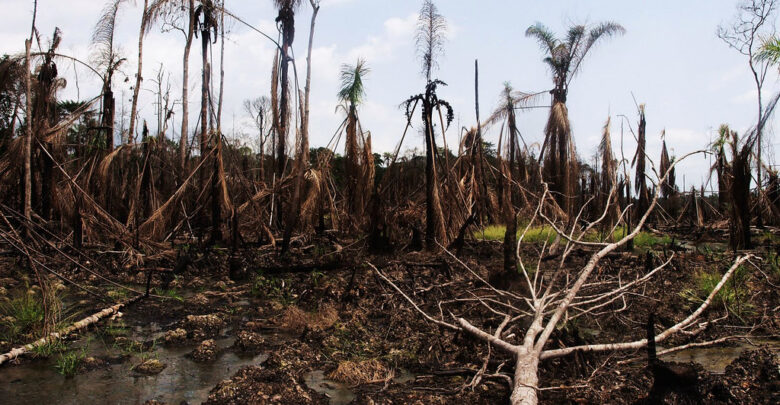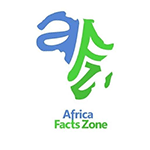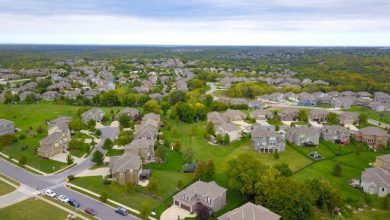Niger Delta: History, Niger Delta Oil Spillage, Theft & Militants

The Niger Delta is the delta of the Niger River, which is located in Nigeria right on the Atlantic Ocean’s Gulf of Guinea.
It is surrounded by nine states that border the coast in southern Nigeria, including Cross River, Edo, Delta, Abia, Imo, Bayelsa, River, Akwa-Ibom, and Ondo.
The Niger Delta is a significantly populous area that is occasionally referred to as the Oil River since it used to be a significant palm oil producer.
From 1885 until 1893, the region was known as the British Oil Rivers Protectorate before it was enlarged and given the name Niger Coast Protectorate.
The delta, which is an area rich in petroleum, has been the focus of global concern over pollution brought on mostly by significant oil spills by multinational businesses in the petroleum sector.
This floodplain accounts for about 7.5% of Nigeria’s total geographical area and is home to 20 million people from 40 distinct ethnic groups.
The third-biggest drainage basin in Africa is maintained there, making it Africa’s largest wetland.
The ecology of the Delta may be divided into four ecological zones: lowland rainforests, freshwater swamps, mangrove swamp forests, and coastal barrier islands.
The majority of her population mostly rely on farming and fishing for their livelihoods.

History of Niger Delta
The first Europeans arrived in the 15th century and started trading goods including spices, textiles, and slaves.
The industrial revolution’s desire for machine lubrication caused the Niger Delta, which was then ruled by the British, to start exporting palm oil.
Oil was discovered, and direct colonial control came to an end.
Following the 1956 discovery of crude oil in Oloibiri (current-day Bayelsa State), Nigeria gained its independence from the United Kingdom.
The nation was organized into regional administrations based mostly on ethnicity at the time of independence.
Conflicts over the distribution of resources, particularly the money coming in from the oil business, have been exacerbated by this.
Sir Abubakar Tafawa Balewa, Nigeria’s first prime minister, was deposed in a military takeover in 1966.
After the Biafran civil war began in 1967, Nigeria was ruled by the military for long stretches of the following three decades with periodic coups.
Damage to the environment
Nigeria generated significant income during this time of unrest thanks to its oil resources. However, the Niger Delta’s social and political turmoil was partially caused by growing environmental deterioration.
Ken Saro-Wiwa, the Movement for the Survival of the Ogoni People’s leader in the early 1990s, was one of the most well-known environmental campaigners.
In Ogoniland, a region of the Niger Delta that has seen unusually extensive oil spill contamination, Ken Saro-Wiwa promoted nonviolent resistance against environmental injustice.
Ken Saro-Wiwa and eight other campaigners were tragically executed in 1995 by the Nigerian military regime. International outrage followed, and Nigeria was kicked out of the Commonwealth.
Niger Delta Militant
The degree of militancy in the area escalated starting in 2004 due to rising armed and violent fighting between gangs and against government and oil company security personnel.
The Movement for the Emancipation of the Niger Delta (MEND) and Niger Delta Avengers are two particularly well-known militant groups.
Militants attacked oil pipelines and abducted foreign oil workers for ransom amid the broader environment of underdevelopment, massive oil pollution, a lack of viable livelihood alternatives, and a government that was mostly unresponsive.
This militancy had a significant impact on oil output, causing oil prices to surpass $100 per barrel for the first time ever. In an effort to avert a resurgence of militancy, the government oversaw an amnesty procedure in 2009 in which over 26,000 militants accepted to a ceasefire and received compensation and chances.
The Presidential Amnesty Programme is still in place today, and there is a modicum of calm, but this is precarious because the root causes of the militancy have not been adequately addressed.
Additionally, there is no clear exit strategy for this incredibly costly program. Despite the end of militancy, the Niger Delta still has daily insecurity due to cultism, piracy, dishonest security personnel, and destabilizing economic activity.
Violence afflicted 20% of Niger Delta households between 2010 and 2017, and during that time, 1 in 20 people lost a loved one as a result of the conflict.
However, the decline in militancy has made room for a thriving civil society to emerge and for organizations to enter the Niger Delta in order to promote more lasting peace, political stability, and economic variety in the region.
Niger Delta Oil Spillage and Pollution in Niger Delta
Because the Niger Delta is located in Nigeria’s rainforest and mangrove forest vegetative zones, it offers year-round agricultural production activities and is home to more than 6.5 million people who depend on fishing and farming.
But it also contains all of the vast oil and gas reserves that, since the 1970s, have contributed more than 70% of Nigeria’s foreign earnings.
And according to insiders in the business, six decades of oil exploration have made it one of the planet’s most polluted regions and destroyed, among other things, farmlands.
Scientists from the Federal University of Technology, Owerri in Imo, one of the states in the area, presented research in the International Journal of Environmental Sciences in 2015 that revealed an average of 150 spills had been reported yearly in the 60 years prior.
The National Oil Spill Detection and Response Agency (NOSDRA) of Nigeria reported a total of 822 oil spills in 2020 and 2021, resulting in 28,003 barrels of oil leaking into the environment.
According to industry insiders, six decades of oil exploration have harmed a lot, including farming, and rendered the Niger Delta one of the most polluted regions on earth.
Also Read: Beautiful Places In Nigeria And Top Tourist Destinations
Niger Delta Avanger
In the Nigerian Niger Delta, there is a violent organization called the Niger Delta Avengers (NDA). In March 2016, the organization made its presence known to the public.
Nigeria’s oil output fell to its lowest level in twenty years as a result of NDA attacks on oil-producing infrastructure in the deltas, which shut down oil ports.
As a result of the assaults, Nigeria lost ground to Angola as Africa’s top oil producer.
Since Nigeria depends on the oil sector for almost all of its government earnings, the decreased oil output has hurt the country’s economy and wrecked its budget.
The NDA has threatened to damage Nigeria’s economy if its objectives are not achieved. The NDA has declared that its goals are to establish a sovereign state in the Niger Delta.
According to the NDA, its members are “young, intelligent, well-traveled, and schooled in east Europe.”
How Many States did Niger Delta have / Niger Delta States in Nigeria
Nine states—Cross River, Edo, Delta, Abia, Imo, Bayelsa, River, Akwa-Ibom, and Ondo—make up the Niger Delta area.
What is the major problem in Niger Delta?
Additionally, sabotage and theft via oil siphoning have grown to be serious problems in the Niger River Delta states, which contributes to additional environmental deterioration.
Why is Niger delta Important?
The Niger River and its Inner Delta are essential for agriculture, cattle, fisheries, transportation, electricity, tourism, and water filtration.They also provide a habitat for a variety of fish and other aquatic creatures, including a number of protected species.
How many oil fields are in the Niger delta?
The Niger Delta contains 500 fields. More than 55% of these are on land, with the remainder in shallow water (less than 500 metres). 193 of these fields are actively producing right now, while the remaining 23 have either been shut down or abandoned.
Which river is known as oil river?
Complete Resolution. Because it used to be a significant producer of palm oil, the Niger River is sometimes known as the “Oil River.”
Conclusion
Residents of the Niger Delta have limited choices for seeking relief in the face of these difficulties. The legal system is inadequate and difficult to use in cases like requesting compensation for neighboring oil spills.
However, certain compensation lawsuits against Shell and its subsidiaries have been brought to England, where Shell’s headquarters is, and out-of-court settlements have been reached there that total far more than what was initially provided to the affected communities.
Very few people can afford the legal assistance needed to pursue this course of action, but it may prove to be an effective alternative to the Nigerian legal system in cases where it is insufficient.
The situation in the region is also influenced by international politics and interests. For instance, the demand for oil globally implies that foreign investors’ interests in Nigeria may be prioritized above those of its citizens.
Companies can so readily take advantage of Nigeria’s lax monitoring and enforcement of regulations, as may be the case with the import of dirty fuels from Europe and other places.





